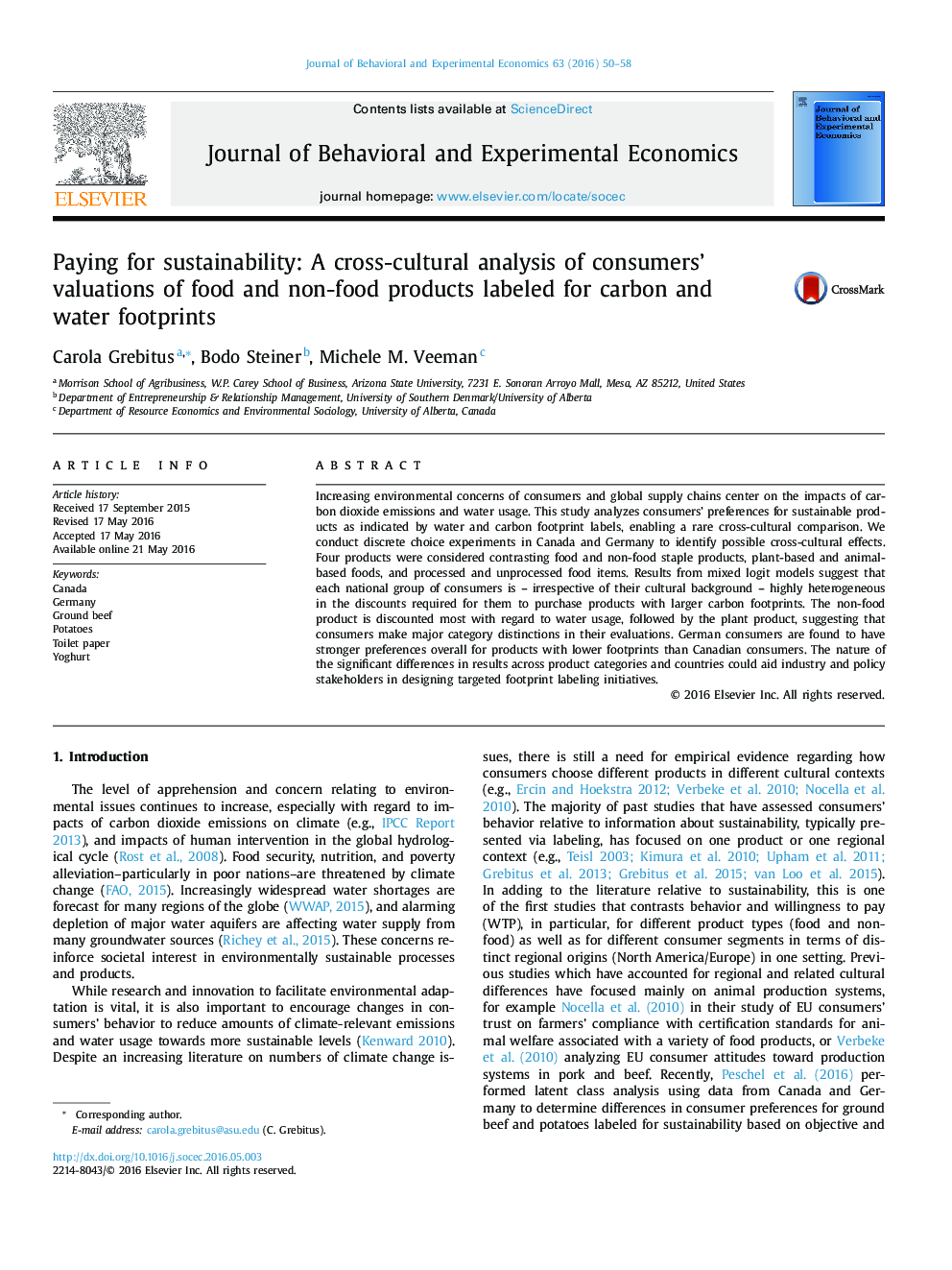| Article ID | Journal | Published Year | Pages | File Type |
|---|---|---|---|---|
| 881785 | Journal of Behavioral and Experimental Economics | 2016 | 9 Pages |
•Analyzes German and Canadian consumers’ preferences for grocery labeling of water and carbon footprints.•Conducts choice experiments for food (ground beef, potatoes, yoghurt) and non-food (toilet paper) items.•Finds higher price discounts are required to purchase higher water-using non-food grocery item than vegetable, followed by protein foods.•Overall, finds German consumers have stronger preferences than Canadian consumers for grocery products with lower footprints.•Even so, consumers are highly heterogeneous in discounting products with larger carbon footprints.
Increasing environmental concerns of consumers and global supply chains center on the impacts of carbon dioxide emissions and water usage. This study analyzes consumers’ preferences for sustainable products as indicated by water and carbon footprint labels, enabling a rare cross-cultural comparison. We conduct discrete choice experiments in Canada and Germany to identify possible cross-cultural effects. Four products were considered contrasting food and non-food staple products, plant-based and animal-based foods, and processed and unprocessed food items. Results from mixed logit models suggest that each national group of consumers is – irrespective of their cultural background – highly heterogeneous in the discounts required for them to purchase products with larger carbon footprints. The non-food product is discounted most with regard to water usage, followed by the plant product, suggesting that consumers make major category distinctions in their evaluations. German consumers are found to have stronger preferences overall for products with lower footprints than Canadian consumers. The nature of the significant differences in results across product categories and countries could aid industry and policy stakeholders in designing targeted footprint labeling initiatives.
